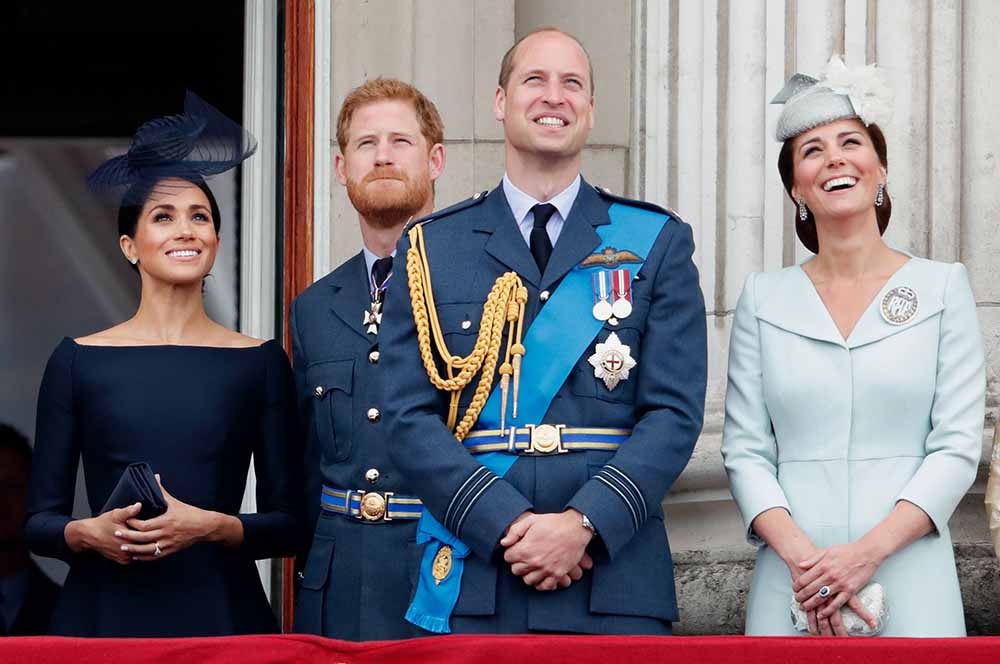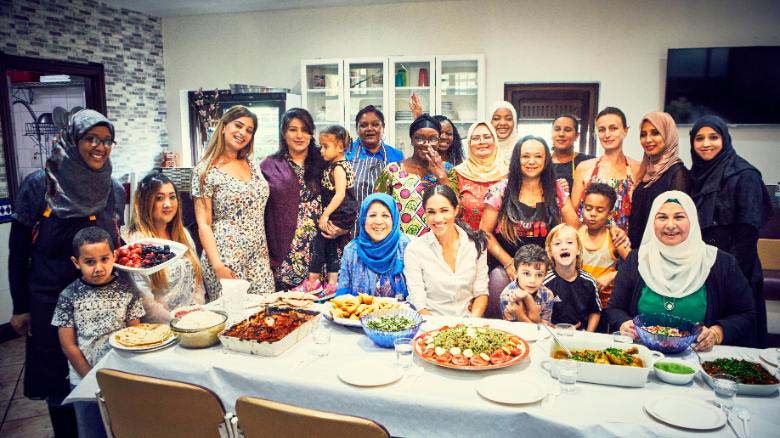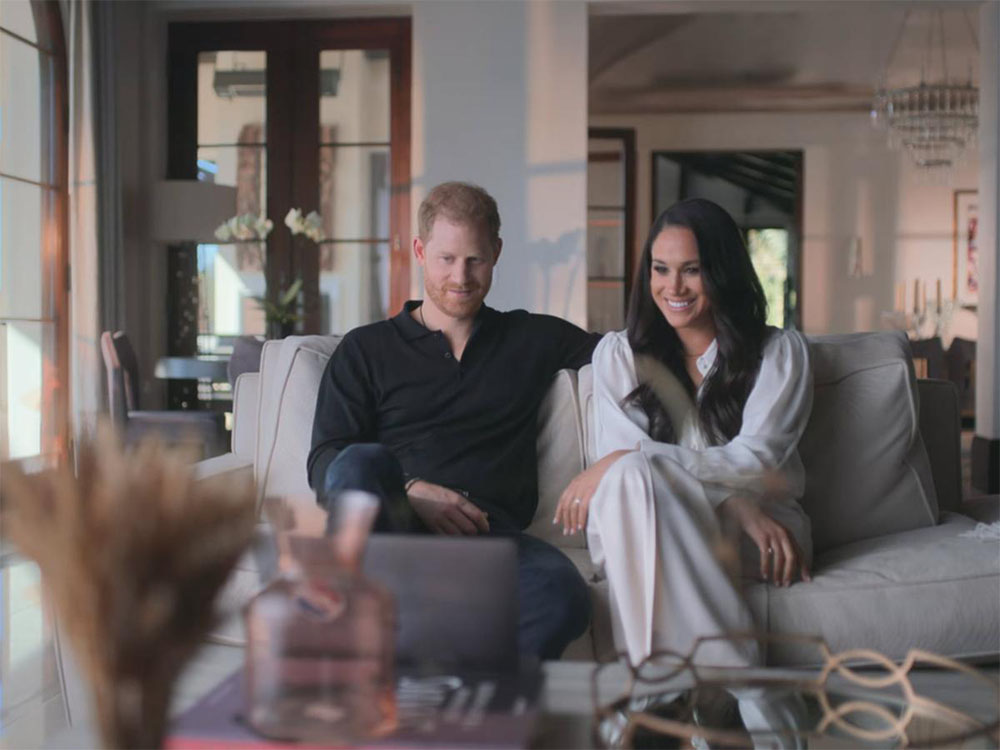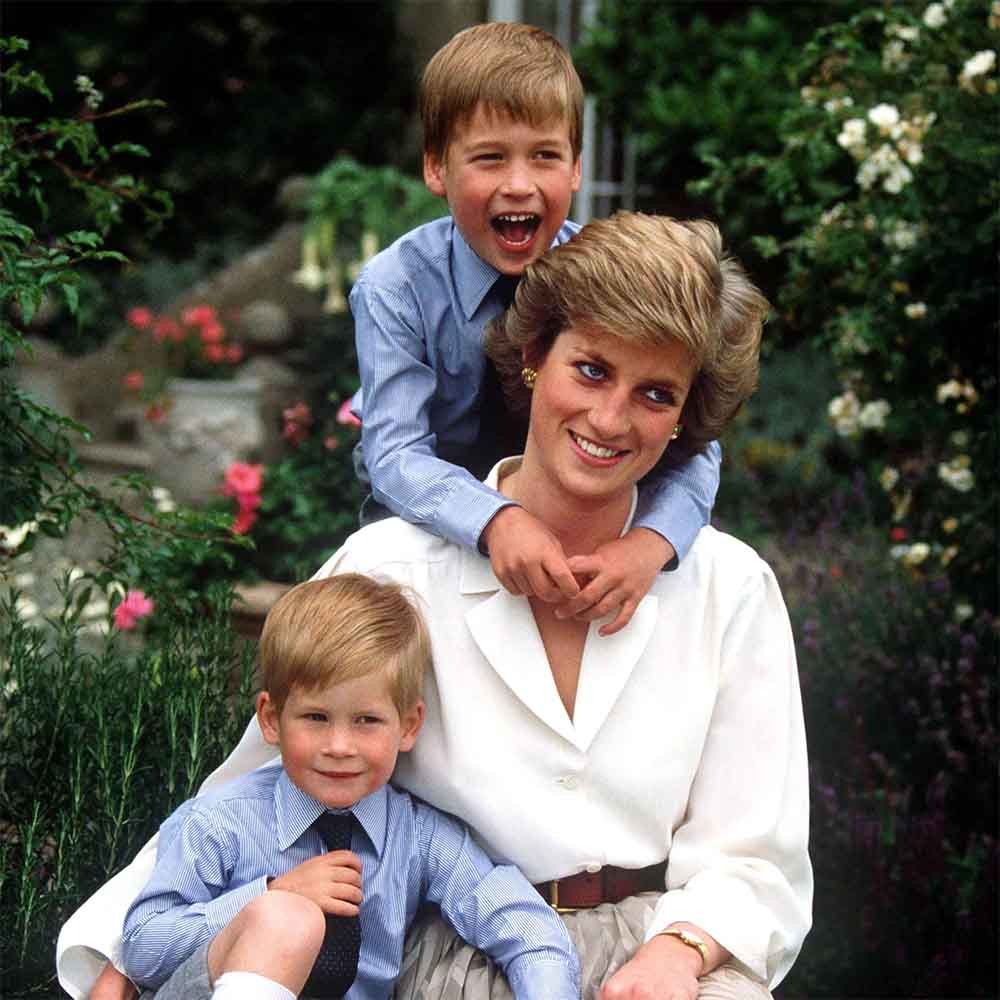Prince Harry and Meghan Markle’s Netflix documentary, simply called Harry & Meghan, is making waves around the world for good reason. The Duke and Duchess of Sussex’s documentary has been surrounded by controversy since the moment it was announced because everyone knew it would shed light on their exit from the British Royal Family in early 2020. If season after season of The Crown can stir up the sentiments of British monarchists and their detractors, imagine what a tell-all documentary laden with real-time footage and in-depth interviews with the couple (and everyone on their side of the divide) can do! Everyone’s curiosity was piqued, and as the documentary was released in two parts over two weeks, reactions came in from across the globe.
The Royal Family or Buckingham Palace haven’t commented on the documentary at all. The British public opinion and US media reaction are divided. The British tabloids—designated Enemy Number 1 in the documentary—have panned and heavily criticised it. And while you may have come across many reviews of the documentary, this one aims to stand apart simply by the virtue of the fact that this author is a citizen of a Commonwealth country, previously colonised in the name of the family this documentary is about. So, the first thing that jumps out is clearly the bit that is most relatable for us.

Meghan’s Treatment A Part Of British Colonial Legacy?
The passing of Queen Elizabeth II just over three months ago—and the reactions from Commonwealth nations where injustices of the colonial era can never be forgotten—are still fresh in our minds. The documentary itself builds on the couple’s deep connect with the Commonwealth nations. Harry not only highlights the relationships he has honed with the people of Botswana, but also reiterates that the couple’s initial idea was to move to a nation like New Zealand, South Africa or Canada, and work for the Commonwealth in the name of the late queen. Meghan and Harry both stress the fact that the former being a woman of colour would help nurture the relationship between the Commonwealth and the Royal Family. That she is a feminist already involved in philanthropy and had a huge public impact when she supported the immigrant women survivors of the Grenfell Tower fire in 2017, was only supposed to help matters.
This interwoven narrative of the British monarchy, the Commonwealth and the inherent racism of British institutions is well explained through the documentary—and stands out as one of the biggest positive takeaways. Experts like Kehinde Andrews talk about neo-colonial racism, while Harry himself opens up about his “unconscious bias”. While the documentary focuses on how this impacted Meghan’s portrayal in British media, it also opens up the doors to more discussions about the Commonwealth nations and their citizens. Because, the simple fact that the British monarchy extends patronage and is still patronising in its approach is as undeniable as the fact that people of colour have found very little representation and reparation from the British colonisers.

Their Truth In Their Voice, With Undeniable Facts
One of the things every viewer must remember going into the docuseries is that it is indeed based on what is popularly called the “Sussex premise” and narrates events as they were experienced by Harry and Meghan. It’s a one-sided story, there’s no denying that. This is their story in their voice, their version of the truth. It’s not the full picture, and we might never get that because the Royal Family, by protocol, cannot do what this couple has done—reveal their side of the story in its entirety to the global public.
And yet, the blatantly unequal (and yes, racist) treatment Meghan received in the British press before the Sussex’s exit from the Royal Family is undeniable. The documentary actually shows all headlines related to Kate Middleton, the current Princess of Wales, and Meghan doing the exact same things like caressing a baby bump, wearing similar dresses, eating avocados to treat morning sickness, etc. The former was always shown in a positive light, while the latter was painted as a problematic person with a troubling background. Harry and Meghan claim that this negative portrayal was done by the British tabloids with the indirect blessing of Palace officials and members of William, the Prince of Wales’ team.

Harry & Meghan: The Self-Aware Couple?
Harry certainly makes claims like this throughout the series, but he also does something that stands out as the second-biggest highlight for this author. He owns up to his mistakes and accepts he’s a work in progress like most human beings. Growing up in the 1990s and early 2000s, most headlines we read about Harry were about his bad public behaviour. He not only acknowledges those mistakes, but also explains how hard he has worked to overcome his inherent biases and internalised racism over time. He also points out the difference between “institutional Harry” and “husband Harry” as a constant dichotomy he faced while being a member of the royal family.
Meghan also refuses to shy away from her problems. She discusses her biracial background and family issues openly. Her rift with her father and step-sister were played out in the media, so everyone is familiar with it. But she brings in a nuanced insight into her identity and her relationship with her extended family by being very open about her childhood, school years, etc. The presence of Meghan’s mother, Doria Ragland, and her niece, Ashleigh Hale, in the documentary, adds to the narrative of women in the extended family taking charge to make peace and progress. Testimonies by the couple’s friends and family also show how valuable a healthy support system is. From Abigail Spencer to Tyler Perry and Serena Williams, the documentary features them all to present the idea that while Harry’s family might not have helped their situation overtly, Meghan and Harry’s friends—their second family—certainly did.
The third important takeaway from the documentary is that the full impact of negative media and trolling on the couple’s mental health was explained. Meghan has famously written about her miscarriage and its impact, but through the series, we come to know more. The couple’s invasion of privacy is clear, and the fear they constantly lived in is very palpable. This gave us a much-needed glimpse from the victim’s side—something many people, especially women, who have been trolled, stalked and threatened will identify with. The caveat here, of course, is that while the couple is complaining about their invasion of privacy, they are perhaps not considering the mental fallout their documentary might have on members of the Royal Family (who are human too, after all, and cannot speak their minds as openly).

Claiming Diana’s Legacy While Going To War?
And that’s why many critics are wondering if the couple went a little too far with their documentary. While narrating their story, Harry and Meghan constantly relate their experiences with the media and the Royal Family with those of Princess Diana. In fact, through old footage and constant references, the couple highlight the fact that their life parallels that of the late “people’s princess” more than it does for anybody else. People across the globe still view both William and Harry as “Diana’s boys”, princes who embody the legacy of their globally revered mother. But what is done subtly through this documentary is the implication that William might be heir to the throne but Harry-Meghan are heirs to Diana’s legacy. In one poignant moment, Harry even says that their life in the US is probably what Diana imagined for herself after her divorce.
This constant callback to Diana’s legacy might seem a bit unfair to William, but the documentary as a whole does even more. The last three episodes of the documentary particularly call out the behavior of William, Kate, King Charles, the “men in grey suits” (Diana’s phrase for the teams that handle the institution’s members) and the “press pack” consisting of journalists from major British tabloids. The couple says throughout that they are voicing their feelings while searching for truth and peace. Critics, however, are asking if the very fact that they did it through a tell-all documentary might increase the conflict between both sides of the family. While only time will answer that question, we recommend you watch the documentary yourself and make up your mind—and share with us your opinions on the docuseries itself.